(The Heart of Texas P-20 Council includes representatives from K-12 education, higher education and employers. They meet regularly to help coordinate efforts to launch our young people into productive lives as workers and citizens. This post is one in a monthly series of posts intended to share information about the work of this important group in our community. For more posts in this series, click here: P-20 education.)
By Ashley Canuteson
I have a dream – that every high school student be fully prepared to take the next steps toward their own dream after graduation; that they look back on their K-12 experience with a sense of accomplishment; that they have connections in place helping to bridge their postsecondary transition; that they take ownership in their goals and are committed to achieving them. I have that dream… and it guides my work each and every day.
As I conclude my sixteenth year in public education, I find myself looking forward to a summer of rest, relaxation, rejuvenation, and reflection. I know what you are thinking… It must be nice for educators to get three months off to do all of those things! You think we get three months off? Um, not exactly. As many educators do, I am still working long after the last student is gone. If I am not officially on contract, I am attending workshops or reorganizing my school space or meeting my colleagues for (gasp!) an actual meal away from campus! I am closing out last year’s paperwork and thinking ahead in planning for next year. Who has time to sit still when there is work to do that will make next school year even better?? That’s where the “reflection” piece of my summer plan comes in to play. When I reflect on the past school year, I ask myself three questions:
- What did I learn?
- How did I make a difference for kids?
- What can I do to make next year even more awesome?
As I sit here and ponder these questions, I realize there is a theme developing within my reflective thoughts: TEAMWORK. A simple word, really. Well, actually, it is a compound word, but that is a grammar lesson for another day! TEAMWORK. One of my go-to motivational authors, John C. Maxwell, wrote a book in 2002 titled Teamwork Makes The Dream Work. His overarching message in the book is that cooperation enhances the collective comparative advantage of a team, making group specialization more productive than individual concentration. I rather like that explanation of TEAMWORK. There is a lot to be said about the importance of TEAMWORK in the realm of education. Teachers cannot simply educate students in isolation – they need to make connections across disciplines and outside of the classroom. Parents are strong contributors to the educational team by supporting their child’s needs both in the home and at school. Counselors advocate for students, but can’t do it without communicating with college partners and other community constituents. All of these moving pieces must work in tandem to achieve a common goal: prepare today’s students for success in tomorrow’s world. What does that look like? Is it the same for every child? Absolutely not! So how do we develop an individualized educational experience for every student? T-E-A-M-W-O-R-K! We simply cannot do it in isolation. Every member of the community plays an important role in the education of today’s young people! What role do you play? Tax payer? Volunteer? Employer? Parent? Educator? How can you make a difference?
I would love to share with you a story about a really impactful event that took place this past spring at Midway High School. I believe it embodies the very essence of how powerful TEAMWORK can be. This annual college and career experience, called Junior Round-Up, brought together a variety of teammates who were committed to building relationships, developing real-world learning opportunities for students, and finding ways to connect public educators with college and career partners. The event was divided into two parts. First, all eleventh grade students at the high school attended a morning full of breakout sessions where they heard from various college representatives and career panelists. Baylor, Texas A&M, Tarleton, Texas Tech, TSTC, and MCC were all in attendance and talked with students about a variety of college-related hints and processes. Career panelists representing roughly 50 local businesses were selected based on student career goals, and were then grouped into panels based on their career alignment to the Endorsements defined within the new Texas Foundation High School Program graduation guidelines. Student feedback on the event was quite positive! It is designed to be generally informative while also being framed around individual student goals as much as possible. The hope is that students walk away with an idea of how they will work to achieve their dreams beyond high school.
In addition to the student portion of the event, this year we tried something new! In partnership with the Heart of Texas P-20 Council, Midway ISD hosted all of the speakers and panelists for a working lunch graciously sponsored by a local community partner, Capstone Mechanical. Counselors and other staff members from neighboring school districts were invited to join the working lunch, and the time was spent brainstorming ideas about how everyone could work together – no matter what role they play – to develop relationships from which students could benefit. Business representatives shared their willingness to speak to students, offer student internships, give company tours, and serve in advisory roles. College partners talked with high school teachers about bridging expectations to better prepare students for the transition to college. These are just two general examples of the true synergy that was developing. Incredible ideas were born at this event because of TEAMWORK!
The really cool thing is that, because of one of those conversations, several students have already reaped the benefits. One example of this is evident in the continued growth of the relationship between Midway High School and Central National Bank. Bryan Fonville, Marketing Director at CNB, met with several business/technology teachers from MHS at the luncheon and – using TEAMWORK – they came up with the idea that students could help write, direct, film, edit, and produce a video for the bank. The students who were selected got to film on site at the bank, and learned a bit about financial planning while also applying their technology skills to a real-world project. The collaborative effort was a great success and the students walked away from the experience with authentic connections that will positively impact them long after they are out of the classroom. And they demonstrated TEAMWORK in their learning.
Still wanting more examples linking TEAMWORK to student success? Envision in your mind students who get to spend time in the summers as Junior Volunteers at Providence Hospital; teens who are invited to complete an internship with Space X one summer that leads to them getting a job offer after high school; kids of all ages who participate in extended learning through educational camps or college course offerings. What kids learn in these real-world situations helps them explore career interests while applying knowledge they gain during the school year. These opportunities are available to local students so they can gain unique experiences that cannot be replicated in a school setting. TEAMWORK makes these things happen. It’s a commitment made by our community that ensures our current generation is prepared to lead us into the future! Do you believe that TEAMWORK can make the dream work? I do. I have a dream… and I believe in our community team! Though school is out for summer, the work doesn’t stop. Consider joining forces with an educator, a school partner, a co-worker, a volunteer group, or even a student; and find a way to be a part of the TEAMWORK that makes the dream work.
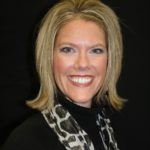 This Act Locally Waco blog post was written by Ashley Canuteson. Ashley is the Coordinator of College & Career Readiness at Midway ISD. She works with the district Career & Technical Education programs and has a passion for working with people. Ashley is a Waco native. She attended elementary and middle school at Midway before graduating from Robinson High School. After two years at McLennan Community College, Ashley attended Baylor University where she received her Bachelor of Science degree in Education. She went on to receive her Master’s degree in Educational Administration from Tarleton State University and is on track to complete her doctorate in Curriculum and Instruction from Baylor University sometime next school year. Ashley is the proud mom to two fabulous children – a future video game designer and a future geologist! She and her husband, Wade, enjoy volunteering together and traveling.
This Act Locally Waco blog post was written by Ashley Canuteson. Ashley is the Coordinator of College & Career Readiness at Midway ISD. She works with the district Career & Technical Education programs and has a passion for working with people. Ashley is a Waco native. She attended elementary and middle school at Midway before graduating from Robinson High School. After two years at McLennan Community College, Ashley attended Baylor University where she received her Bachelor of Science degree in Education. She went on to receive her Master’s degree in Educational Administration from Tarleton State University and is on track to complete her doctorate in Curriculum and Instruction from Baylor University sometime next school year. Ashley is the proud mom to two fabulous children – a future video game designer and a future geologist! She and her husband, Wade, enjoy volunteering together and traveling.
The Act Locally Waco blog publishes posts with a connection to these aspirations for Waco. If you are interested in writing for the Act Locally Waco Blog, please email [email protected] for more information.
By Susan Cowley
You wake up in the morning and immediately your heart starts pumping fast and hard, because you’re not sure where you are. It’s not a room you know. And there’s a kid under the sheet with you and you don’t know her either. But you know she wet the bed.
Oops, not your story. Let’s head across town and back in time.
I’ll bet your mama gave you choices. You probably didn’t get to decide what to eat for dinner (“Eat what’s on your plate” is a good message, too). But she might have laid out two or three outfits and allowed your chubby hands to grab one that attracted you.
And Mom had a schedule for you, too. You were just a little kid, so she decided what time you ate your “green eggs and ham,” had your bath, read a bedtime story ending with “Goodnight, Moon,” said prayers if you were a religious family, followed by tucking in ~ likely by 9:00 at the latest.
Okay, maybe your house ran on a bit different “clock,” but you had sequential and repetitive experiences laid down again and again. Besides learning what time to hide behind the clothes hamper to escape bathing, you were also laying strong neural pathways that later gave you the ability to sit in your tiny chair in Kindergarten, stand in a lunch line, answer when spoken to, go to the pint-sized potty, and wash your hands.
Who doesn’t do that by Kindergarten? Millions of children don’t. Here’s how their brains formed. But we’ll call this child “you.”
You wake up in the morning and immediately your heart starts pumping fast and hard, because you’re not sure where you are. It’s not a room you know. And there’s a kid under the sheet with you and you don’t know her either. But you know she wet the bed.
You stumble out to find your Mom. She’s mad because you smell like pee and she won’t let you tell her that the other kid wet on you. Too late anyway. Time to leave. Maybe you’ll eat at the next stop.
You’re dropped off with Mama’s friend. He keeps running from house to curb as cars drive up and leave. But he does have a pickle and you’re happy to have it. Chips, too. But no toys or books. You see a belt hanging by the door. Better to stay as quiet as possible. Who could hear you anyway? The music is pounding so loud it hurts.
You feel a surge of hope: Mom’s back! But, she’s yelling at her friend. And he’s grabbing her by the arm. Your heart is beating so fast you can’t breathe. You don’t know what they’re saying but it sounds like FEAR, your fear.
Mama grabs you by the shirt and hauls you to the car, slams the door and keeps yelling. At who? Later when you get to Mom’s apartment, she’s crying. She pulls you out and hugs you all over tight and tells you she’s sorry, she’s so sorry. You’re afraid to take a breath. She might let you go.
Back in the apartment, your four sisters and brothers are shooing mice back into the walls. Because you still smell, you go through a pile of clothes on the floor searching for something that looks as small as you. No drawers. No hangers. Piles.
The TV is on and the other kids are watching a scary movie. It terrifies you, but you can’t take your eyes off it. Hours go by. Lots of hours punctuated by Ramen noodles and your brothers fighting till there’s blood.
Finally, you’re so tired you fall down asleep…wherever you land. At least tomorrow, you’ll recognize the walls.
We know from brain research that day to day repetitive experiences are the scaffolding that children’s brains use to organize themselves. Without these repetitive experiences children’s brains will organize around something. Children of deep poverty have their brains literally organized around chaos.
Fast forward to Kindergarten. Why would you sit in that little chair every time? What does it mean to stand in a line? If a boy hits you, you’ve learned to “beat him down” or not tell. It’s a world apart from, “Red shirt or purple?”
Your arm may grow to be longer and longer, but your brain will not grow to be a strong ally to your life when chronic stress pours cortisol, a hormone that interferes with learning and memory, into your brain. Jack Shankoff, director of Harvard’s Center on the Developing Child, says that excessive levels of stress hormones disrupt the formation of synaptic connections between cells in the developing brain – and even affect its blood supply. “They literally disrupt the brain architecture,” he says.
The next time you see a Waco child in deep poverty, really look. Is she ready to fight? Or is she so shame-based and terrified, she can’t look up. These are the kids whose amygdalas – the part of the brain responsible for decision making and emotional reactions – have already been hijacked over and over by PTSD, some by the time they were one to two years old. They’re in full fight, flight or freeze.
And, please, rein in blaming Mom. She is 6th generation urban poverty. No one bonded affectionately with her either. No choices. Same environment.
Why does all this matter? Ask Dr. Bonny Cain. If a child doesn’t feel safe, that child can’t learn. And Waco has a host of children who rarely feel safe or valued.
What can you do? Every chance you get, look into the eyes of a child in poverty and let your smiling gaze say, “My, how wonderful you are, what a treasure, how lovable!” You can practice at H-E-B or WalMart; or watch for them at a park or as you enter a public school.
And whenever you see a young parent with an infant or toddler, foster bonding. Point out how much the child prefers Mama or Daddy. “Oh, I see how safe she feels with you holding her.”
Then, be bold and brave. Mentor such a child. Don’t worry about being successful. Be faithful. And that’s everything.
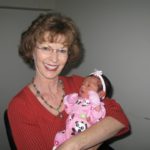 Susan Cowley is the long-time owner of The Cowley Group, a Waco marketing firm. In 1999 she helped to co-found Talitha Koum Institute where she now serves as Executive Director. Learn more about TKI’s mental health therapeutic methods and its mentoring program at TalithaKoum.org.
Susan Cowley is the long-time owner of The Cowley Group, a Waco marketing firm. In 1999 she helped to co-found Talitha Koum Institute where she now serves as Executive Director. Learn more about TKI’s mental health therapeutic methods and its mentoring program at TalithaKoum.org.
The Act Locally Waco blog publishes posts with a connection to these aspirations for Waco. If you are interested in writing for the Act Locally Waco Blog, please email [email protected] for more information.
By Kevin Compton
It’s a lazy Sunday afternoon, and I am at home–soaking up air-conditioning. School has just ended. I am relieved, exhausted, elated, and sad all at the same time. Like most teachers, I have worked hard to get my students ready for “the next level.” Unlike most teachers, I teach the same students year after year. I am Coach Compton, and I am the AVID (Advancement Via Individual Determination) elective teacher at University High School. I already miss my kids.
For my students the “next level” is college. My kids want to go to college; the problem is they are not ready for it. They do not have family members who are college graduates, generations of financial success, or knowledge of “the system.” They are not prepared, just as I was not prepared. I have a master’s and two bachelor’s degrees, and finished the last two with a 4.0 average. Sounds like I was well prepared. I was not. I had no idea how to be organized or how to study. I had to learn along the way. After posting a 0.something, and after finding myself on scholastic probation and HAVING to leave my first university, I left school for the work place. The oil-field gave me the motivation, determination, and work-ethic I needed to return to school and be successful.
Many of our students might be headed for the same experience I had – leaving high school with great aspirations and coming home deflated and discouraged. The difference is they have AVID, and I did not. AVID is designed to help students learn those crucial lessons about motivation, determination and work-ethic (the ones that I learned the hard and expensive way) while they are still in high school.
In the AVID elective class, students discover skills and behaviors for academic success. We support students through tutorials and strong student/teacher relationships. We create a positive peer group for students. We help them develop the sense of hope that comes from personal achievements gained through hard work and determination. The AVID culture is truly one of family. Also, AVID students learn about being good citizens by giving to the community. I help them identify opportunities to serve, but they are required to complete community service hours on their own. UHS AVID students have volunteered at the HEB Feast of Sharing—serving food and making arts and crafts. AVID students played a significant role in UHS’s designation as a “Keep Waco Beautiful” school.
The AVID elective is not for everyone. It targets students in the academic middle. Students who have the desire to go to college, who are capable of completing rigorous curriculum, and who have the will to work hard. Typically, AVID students are the first in their families to attend college and are from groups that are underrepresented in post-secondary institutions. They are students who are capable of success in rigorous curricula, but for many reasons, do not always achieve that success. AVID helps them bridge the gap.
At University High School, we began the AVID program in 2013 and recruited freshmen only. In the 2014-15 year we had freshmen and sophomores. Next year AVID will have 9th-11th graders. In 2016 UHS will boast its first AVID class to graduate. My dream is that all of my kids will be accepted at the college or university of their choice. But as I often tell them, getting to college is not my goal for them. My goal is that they have the tools to be successful in and graduate from college.
So with all of this good stuff, what’s the problem?
In today’s economic environment, money is always an issue. Our students come to school lacking the basic necessities and experiences that many of us take for granted—food, a safe environment, and experiences outside our neighborhood. Many of our students go home from school not to study but to clean the house, take care of younger siblings, and cook for the family. They often have only one parent, and that parent often works more than one job. (And we wonder why they struggle with school work…. ) Our school provides meals and supplies. The intangibles like safety and experiences are harder to come by. AVID helps by providing tutorials, college field trips, and expectations for success.
Waco ISD has been very supportive of AVID. However, we would like to do more. Rather than taking two college trips per year, we want to take four. We would like to have shirts that we can wear on and off campus to build pride and to make us distinctive as a group. Also, we are constantly looking for community service projects that we can take part in as a group. I want to be able to provide my students with the tools and the support they need to be successful college students and ultimately productive members of society who give back to the communities they live in. Would you be willing to help?
See pictures of my kids and learn more at http://aviduhs.weebly.com/, or go to the AVID web site at www.avid.org for more information. For ways you can help, contact me at [email protected].
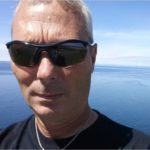 This Act Locally Waco blog post was written by Kevin Compton. Coach Compton is the AVID Elective teacher at University High School. He is also the head baseball coach and an assistant head football coach. He has taught in Waco ISD for 10 years, the last two at University High School. Coach Compton is married to Caryl Miller-Compton, also a long time teacher for Waco ISD. Between them they have 5 boys, Andrew, Kyle, Ross, Matthew, and Koby.
This Act Locally Waco blog post was written by Kevin Compton. Coach Compton is the AVID Elective teacher at University High School. He is also the head baseball coach and an assistant head football coach. He has taught in Waco ISD for 10 years, the last two at University High School. Coach Compton is married to Caryl Miller-Compton, also a long time teacher for Waco ISD. Between them they have 5 boys, Andrew, Kyle, Ross, Matthew, and Koby.
The Act Locally Waco blog publishes posts with a connection to these aspirations for Waco. If you are interested in writing for the Act Locally Waco Blog, please email [email protected] for more information.
By Allison Abel
Compound interest.
Adjustable-rate mortgages.
Foreclosure.
Are you cringing yet? You’re not alone – 71% of adults report having financial worries. The United States of America is dealing with a financial literacy crisis.
Wait, what was that?
Yup, you read it right. It may not be the Stock Market Collapse of 2008 or the Great Depression of the 1920s, but, unless change happens fast, our situation will escalate into something for which no one can prepare.
From young kids setting up enterprising lemonade stands, to students paying for sky high college loans, to baby boomers preparing for a life of leisurely retirement, the health of our nation’s financial system relies heavily on its citizens’ abilities to take care of their own pocketbooks. With debt mounting and savings dwindling, it is evident that many Americans of all areas, ages, ethnicities, and income levels are unable to successfully manage their own finances.
Money management skills learned early in life serve as the foundation for future financial decisions. The National Financial Council reports that in 2014, 62% of middle and high school students were unable to pass a basic financial knowledge test. 62%! That is unheard of! If these poor financial literacy scores are the norm, what are we to expect for students who fall below national averages? Whether the task of teaching money management skills is placed on families, teachers, non-profits, or the media, financial knowledge is slipping through the cracks. Students around the nation are not building the needed foundation of economic knowledge.
As these financially uneducated youth grow into young adults, they are met with a flurry of decisions almost immediately…
Enter the workforce?
Travel the world?
Continue education?
Many high school graduates are ill-prepared to face life’s financial challenges waiting for them on the other side of the stage. Only one quarter of graduates surveyed could answer questions about inflation and simple interest. By college graduation, the average student has acquired $30,000 of student loan debt, according to US News. I could continue to throw out statistic after statistic, but instead, I’ll just state it like this: too many students are unprepared to take on debt and are financially irresponsible, causing distress for them, their families, and the community as a whole.
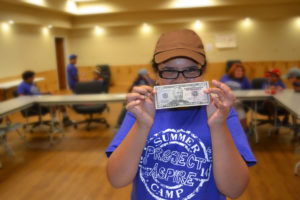 Project ASPIRE through NeighborWorks Waco strives to combat these issues from the start by teaching financial literacy to the students of McLennan County, equipping them with the skills they need to prepare themselves for a lifetime of financial decisions and stability. For example, this week (June 8 through 12) Project ASPIRE will be hosting its annual summer camp! This is a completely free camp for all 3rd-5th graders who may like to participate and learn more about financial literacy and healthy living habits. Lunch is provided each day, along with fun and educational field trips to a variety of locations throughout McLennan County.
Project ASPIRE through NeighborWorks Waco strives to combat these issues from the start by teaching financial literacy to the students of McLennan County, equipping them with the skills they need to prepare themselves for a lifetime of financial decisions and stability. For example, this week (June 8 through 12) Project ASPIRE will be hosting its annual summer camp! This is a completely free camp for all 3rd-5th graders who may like to participate and learn more about financial literacy and healthy living habits. Lunch is provided each day, along with fun and educational field trips to a variety of locations throughout McLennan County.
This year, Project ASPIRE experienced unprecedented success in Waco ISD schools, showing what the program can accomplish. We have seen the direct impact our services have on students and are ecstatic with the opportunities that await us in future years. Through our continued growth, Project ASPIRE will remain committed to its central mission: providing high quality, comprehensive financial education to the youth of McLennan County and ensuring their future success.
**If you are interested in supporting or participating in this needed and growing program, please contact Allison Abel ([email protected]) at NeighborWorks Waco for more information about how to get involved!
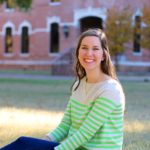 This Act Locally Waco blog post was written by Allison Abel. Allison is the Program Specialist at NeighborWorks Waco. She received her degree in Child and Family Studies from Baylor University. A Waco native, Allison enjoys life connecting with family and friends, reading any novel she can find, and enjoying downtown Waco.
This Act Locally Waco blog post was written by Allison Abel. Allison is the Program Specialist at NeighborWorks Waco. She received her degree in Child and Family Studies from Baylor University. A Waco native, Allison enjoys life connecting with family and friends, reading any novel she can find, and enjoying downtown Waco.
The Act Locally Waco blog publishes posts with a connection to these aspirations for Waco. If you are interested in writing for the Act Locally Waco Blog, please email [email protected] for more information.
By Matthew Polk
On February 18, Prosper Waco held its Inaugural Event at the Waco Convention Center. The event was free and open to the public. About 450 community members attended. Troy Bush, one of our partners at Episcopal Health Foundation (EHF) in Houston, commented earlier this week on how impressive it was to see so many people in one place to dialogue about community issues. Even in Houston, he said, it would be difficult to bring together 450 people for a community conversation.
But is 450 enough? How many people does it take to truly represent a community as diverse as Waco?
Some who attended the Inaugural Event wondered if a person living in poverty would have felt welcome at the very event that was supposed to be about reducing poverty. That is a troubling question. If we want to improve the overall prosperity of our community, we are going to have to work together to overcome some serious challenges associated with Education, Health and Financial Security. To do this effectively, all of us must be a part of the conversation. We need every perspective. We need the perspective of those of us who wrestle every day with the realities and practicalities of life WITHOUT solid education, sound health and secure finances.
The promise of Prosper Waco is in the bridges that we can build between big-picture strategies for community improvement and the needs of people in neighborhoods throughout the city. We have a long history of productive big-picture thinking by our public officials and by people who have had the financial resources to make big investments. Our system of Family Health Centers, our abundant water supply and the attractiveness of community jewels such as Cameron Park, the Zoo, and the Convention Center are evidence of wise, strategic, big-picture thinking that has paid off.
We also have a long history of neighborhood development. We have experienced the benefit of doing the patient work of building relationships, one neighbor at a time, even when lack of resources makes those relationships both more crucial and more difficult to maintain. The success of the 15th Street “Street of Dreams” initiative is a great example of this kind of neighborhood-level revitalization work.
Often, however, it has been difficult to find effective ways to connect visionary plans and grassroots work. Certainly there are examples of where it has happened—for example, the City of Waco housing department worked effectively with local non-profits to better serve Waco’s homeless population and dramatically decrease the number of people in Waco who suffer chronic homelessness. But it remains a challenge to build bridges between a community’s resources and the people who need to benefit from them.
The momentum behind the Prosper Waco initiative and the generous engagement of a wide range of community partners makes this the right time to successfully build those bridges, to engage the whole community, to work together.
That’s why our partnership with Troy and EHF is important. EHF has a track record of engaging communities to identify local health challenges and to develop strategies to overcome those challenges. They are experts in making sure people from all parts of a community are involved in developing the solutions that will make their community stronger. One of the techniques they have used successfully to get this kind of community involvement is to establish a Community Engagement Council. Prosper Waco has partnered with EHF and Alexis Christensen, a local community organizer, to develop a Community Engagement Council for Waco to help ensure that people throughout Waco participate in the Prosper Waco initiative.
The Prosper Waco Community Engagement Council is a group of individuals who live in some of the neighborhoods in East, North and South Waco where the challenges of education, health and financial security are felt most acutely. These are individuals who are active in the community and willing to take the time to dialogue together to think about the best ways to take the Prosper Waco initiative to people in all parts of the city.
The council members will be actively spreading the news about Prosper Waco in their neighborhoods. They will be inviting friends and neighbors to events to learn more about Prosper Waco activities and to have conversations about what Prosper Waco can mean for them. They may be reaching out to you or people you know with an invitation to have dinner and dialogue about Prosper Waco. Be on the lookout for signs of Prosper Waco in your neighborhood.
Does this type of community conversation interest you? A steering committee discussion of community data may not be your cup of tea, but a conversation over dinner with friends and neighbors may be a way that you can help build this community initiative. If you are interested in building community engagement as part of the Prosper Waco initiative—especially if you live in one of the areas of the city mentioned above—give us a call at 741-0081, or email me at [email protected] and let me know that you’re interested in being part of the work of Prosper Waco.
Editor’s note: FYI, Prosper Waco has a show on the Waco City Cable Channel. Click here to see Matthew’s interview with Pastor C.J. Oliver, a member of the Community Engagement Council. It is in the second half of the show after the interview with Dr. Jim Morrison.
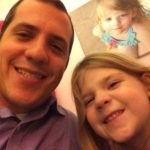 Matthew Polk is Executive Director of Prosper Waco. Prior to that, he served as Superintendent of Rapoport Academy Public School. He and his wife attended Baylor, and after spending a few years in the northeast, they returned to Waco to raise their family. They have four children, ages 8 to 3 months. You can contact him at [email protected].
Matthew Polk is Executive Director of Prosper Waco. Prior to that, he served as Superintendent of Rapoport Academy Public School. He and his wife attended Baylor, and after spending a few years in the northeast, they returned to Waco to raise their family. They have four children, ages 8 to 3 months. You can contact him at [email protected].
The Act Locally Waco blog publishes posts with a connection to these aspirations for Waco. If you are interested in writing for the Act Locally Waco Blog, please email [email protected] for more information.
By Katherine Landgrave
What is preconception health? A couple of years ago, if I had looked at this word I would have probably focused on the conception part and would have been terrified at the word. As a 22 year old in graduate school, the idea of having a child is the furthest thing from my mind. I am a huge planner and have my next five years all mapped out. However, if there is anything I’ve learned from life, it’s that life tends to throw curve balls at you and things don’t always go according to plan. For instance, did you know that over half of pregnancies in the US are not planned? Of course no expects to have an “unplanned” pregnancy, but obviously it happens quite frequently. While having children is not a part of my five year plan, I need to remember that my plan isn’t always what will really happen.
So again, what exactly is preconception health? Preconception health refers to the health of women and men during their reproductive years, when they can have a child. So it’s a broad area of health that covers any woman or man during childbearing age. I think one of the things that surprised me most about this definition is that preconception health isn’t just about women, but about men too. Preconception health is about making sure women and men are becoming healthier for their future and for the future of their children.
For women, preconception health isn’t just about a woman’s pregnancy or planning for one. It means choosing healthy habits today, so that you will have a healthier life. It means planning for your future and taking steps to make that future a reality.
Preconception health for men is about staying healthy too. That may mean being active so you can be there for your children one day and protect them, or it may mean encouraging and supporting the health of your partner. It means being able to be healthy enough to provide for yourself and your family one day.
Preconception health is also about the health of our babies. The United States has some of the worst birth outcomes among developed countries. I know that I don’t want my future children to be born premature or to have any complications, so I want to do everything I can do today to protect the future of my children someday down the line.
So what can we do to focus on preconception health? Texas has started a campaign called “Someday Starts Now” that focuses on this exact topic. On their website www.somedaystartsnow.com they provide information for men and women in every life phase. They have different categories like “I don’t want or can’t have children”, “I’m not sure if I want children”, “I want to have a baby someday”, “I’m expecting a baby now”, “I’m already a mother”, “I’m finished having babies”, and even “My partner and I have lost a pregnancy or baby.” These seven categories cover a wide variety of life’s situations and provide tips on how to have a healthy body, healthy environment, and healthy mind. This campaign does a great job of getting women and men to start thinking about their future and making life plans for themselves.
One of my favorite parts of the campaign is the “life planning tool”.
In it you identify your goals for the future and write out how you are going to achieve those goals. This is something every woman should fill out today. As I mentioned before, I like outlining my plans. This tool helps me align my five year plan with my health goals and family plan. It starts me on the path to make sure the future is bright for the family I plan to have.
I’ve been working with the Healthy Babies Coalition and preconception health for four months now and I’ve come to realize how important it is for women and men everywhere. I don’t want to have a child right now, but I do want to have healthy children someday. Now I realize that I need to start taking care of myself today so I can bring a perfect little being into a healthy world someday in the future.
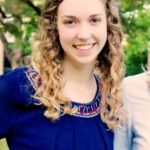 Katherine Landgrave is a graduate assistant for the McLennan County Public Health Department working with the Healthy Baby Coalition. She is also a graduate student at Baylor University working on her master of in public health. Katherine has a passion for working in the community and through this position has found an interest for working with maternal and child health. She hopes to one day go to medical school and continue helping improve birth outcomes and the overall health of all women.
Katherine Landgrave is a graduate assistant for the McLennan County Public Health Department working with the Healthy Baby Coalition. She is also a graduate student at Baylor University working on her master of in public health. Katherine has a passion for working in the community and through this position has found an interest for working with maternal and child health. She hopes to one day go to medical school and continue helping improve birth outcomes and the overall health of all women.
The Act Locally Waco blog publishes posts with a connection to these aspirations for Waco. If you are interested in writing for the Act Locally Waco Blog, please email [email protected] for more information.
By Kenneth Moerbe
“I have a ‘business card’ that has the usual info, my name, contact information, etc., while in the place where most folks indicate their business, vocation, etc., I simply have the word “Volunteer”. I’ve been blessed to be able to volunteer in our community throughout my almost two decades of being a Waco resident, especially since I retired from my last job at Caritas of Waco. Last week (5/19-5/22) was one of the most fabulous weeks of my volunteering experience, and not at all because of any time, energy, and gifts that I, as a volunteer, was able to give to our community, but because of the encouragement, delight and just plain human joy that I was able to derive from being with just a few of the remarkable children and youth living in our community!
This rewarding week began with a brief conversation with a fellow member of the Waco Kiwanis Club, who is the chairperson of the our club’s Kiwanis Foundation’s Board, which annually provides college scholarships to students in local high schools. In that conversation I learned that one of the recipients of our scholarships was the President of the Kiwanis Key Club at A.J. Moore/University High, whom I had met last fall while attending a meeting of this very active Key Club. We establish Key Clubs in high schools to encourage students to give their volunteer time and gifts to community efforts to improve the lives of children and youth. In a recent conversation with this student leader, I learned some of the specifics of the community service of this group, probably also the most active community service organizations at University High in terms of hours volunteered in community service. Examples of volunteer service this past school year included: collaborating with Communities in Schools to mentor and tutor students at South Waco Elementary and West Elementary schools, volunteering to help serve and clean up at the Salvation Army’s Thanksgiving and Christmas meals, park and recreational area clean-ups, participating in the Race for the Cure, etc., etc., etc.!
On Tuesday, as a member of the Mission Waco/Mission World Board, I spent some very enjoyable moments with some of our African American youth who were involved in Mission Waco Youth’s Wellspring Awards Banquet. This annual event usually involves some high school graduating seniors receiving scholarships. This program began some years ago when an anonymous couple, who believed in Mission Waco’s ministry among youth living in poverty and in the potential for urban youth to overcome the scourge of poverty in their lives through education. This couple made a significant donation to Mission Waco to establish this Wellspring Scholarship Program. However, this year there being no graduating high school seniors in this youth ministry, a group of youth from the 3rd grade through the 8th grade, were brought together and affirmed for their achievements that included spiritual growth, as well as growth in other qualities while taking part in this youth ministry. As Jimmy Dorrell talked briefly with them about the theme of this ministry expressed in the words, “You are Capable”, and they introduced themselves and shared their hopes and dreams, it was very apparent that they were not only high achievers in the Mission Waco program, but in their families, neighborhoods, schools and probably congregations. I left the experience incredibly thankful that I had been invited to experience and interact with these fantastic kids!
The next day I attended the Permanent Housing Task Force, a small and energetic group of professionals in several local agencies involved in trying to end chronic homelessness, increasing housing stability among our residents, and implementing the Almost Home Waco Campaign. One of the reports related to these efforts was specifically about the hundreds of youth in Waco ISD who ‘lack a fixed, regular, and adequate nighttime residence.” This is the language of the McKinney-Vento Act which tries to insure that children and youth have some educational stability as they experience a form of homelessness. In recent years as many as 10% (1500 students) of Waco ISD students are classified as ‘unaccompanied youth’ as they live in motels, hotels, campgrounds, wherever they can find temporary housing, or children where primary nighttime residence is not used as a regular sleeping accommodation. As we approach a time of graduation from high school in our community, Cheryl Pooler, our homeless liaison staff person, reported that 40+ of these youth were graduating from high school this year, and that both Waco High and University High had at least one of these graduates in the top ten members of the senior class. In the last few years I’ve heard wonderful stories of these ‘unaccompanied youth’ completing graduation requirements while living in very unstable and constantly changing circumstances. I remain more than impressed with the resiliency, character and determination of these youth!
Finally, I have, for a number of years, served on the A.J. Moore Academy/University High Business Advisory Board. My specific responsibility in recent times has involved serving in leadership of the Fundraising-Scholarship Committee. As we approach the time of awarding these scholarships to seniors I’m involved, along with others on the Advisory Board, in the evaluation of these written applications. Also, last Friday, as part of this process we interviewed the top fifteen of these applicants. Again, it was the most amazing experience to listen as these brilliant, talented, creative, hardworking and articulate scholars talk about their lives and their hopes and plans for continuing their educations in a college or technical school, leading to a variety of careers. Most of these students had at least one part-time job, not only to hopefully be able to save money for their future education, but several of them held these jobs to assist and support their families to put food on the table and a roof over their heads.
One of these students, who was ranked near the top of the fifteen finalists, particularly captured my attention as the student shared that they worked at three part-time jobs, and also provides for much of the ‘parental care’ of the student’s two younger sisters. This student was brought by her parents to Texas when she was six years of age, and on several occasions during the interview when programs which might assist this student were referred to, the student simply said that they could take advantage of this program “because I am not a citizen of this county.” All that I could think of to say to this student as they left the interview was “I’m so glad you are here in this country”. I’m proud to live in this community with these remarkable kids. We are truly blessed!
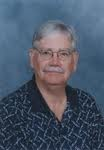 This post was written by Kenneth Moerbe. Kenneth is a Lutheran minister and the former executive director of Caritas. He has participated on just about every committee and task force in town that has anything at all to do with increasing food security or reducing poverty. When he and his wife, Paula, are not gallivanting all over the world on one of their many travels, they are busy serving on various boards, delivering Meals on Wheels and generally being two of the finest and most fun folks in Waco.
This post was written by Kenneth Moerbe. Kenneth is a Lutheran minister and the former executive director of Caritas. He has participated on just about every committee and task force in town that has anything at all to do with increasing food security or reducing poverty. When he and his wife, Paula, are not gallivanting all over the world on one of their many travels, they are busy serving on various boards, delivering Meals on Wheels and generally being two of the finest and most fun folks in Waco.
The Act Locally Waco blog publishes posts with a connection to these aspirations for Waco. If you are interested in writing for the Act Locally Waco Blog, please email [email protected] for more information.
By Liz Ligawa
Her name was Lulu. She was from Vietnam, and seemed to be around 70 years old. I gently handed Lulu a flyer we were sharing with those experiencing housing insecurity. It was about the worship service which would be held in the park on Tuesday, and the Sunday service which would be held at the church followed by a meal. Lulu looked up at me quizzically and replied, “We have no food. Nobody come today. We are hungry.” The day was Saturday.
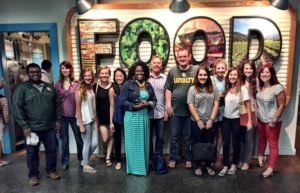 I had been looking forward to this D.C. Hunger in America trip for the past few months. My natural inclination towards advocacy seemed to fit well with what Baylor Missions and the Texas Hunger Initiative were working on in D.C. with regard to addressing the need of food security. I was ready. Who would not want to help with this issue?
I had been looking forward to this D.C. Hunger in America trip for the past few months. My natural inclination towards advocacy seemed to fit well with what Baylor Missions and the Texas Hunger Initiative were working on in D.C. with regard to addressing the need of food security. I was ready. Who would not want to help with this issue?
Not many people know this, but the way Ashley Thornton, the Director of Act Locally Waco, and I became acquainted was through this Act Locally Waco blog. I had a dissenting opinion on an article that was posted, and she in turn asked if I would consider contributing to the blog. She wanted to get together to chat. I was stunned (and a little bit scared). Who responds to dissent in this way? Ashley does. But she does not respond in this way to dissuade you from your position; she honors dissent on the search to find ways to include more voices in the conversation. On this trip, I would realize that I would have to also find ways to include others in this dialogue-especially when talking about the economically poor.
“1 out of 7 senior adults are food insecure.” –National Council on Aging
I looked around to see if there was anyone with Lulu. She did not have a home, but surely she was not out here by herself, right? I wanted to know, but Lulu mainly spoke Vietnamese. One of the fellow students on the trip was also Vietnamese…and Lulu was able to share her story. Lulu was alone. Her son had left her.
During the week in D.C., we had several opportunities to use our voices to influence political will. We participated in advocacy meetings on the capitol with representatives. We met with heads at USDA, and discussed policy implications with direct reports to President Obama. We visited several agencies committed to addressing food insecurity, and even attended a Sub-Committee hearing on food benefit programs. There was a lot of talking (and walking). But there, in front of Lulu, I was faced with my own limitations. I had been talking about the need for food security all week, but I did not even have a granola bar in my pocket to offer Lulu. I felt like I failed her.
That is when something amazing happened. A small group of hipster guys (dissenters in their own right) started setting up a table at the far end of the park. I was curious as to what they were doing, but I wanted to complete the assignment that brought us to the park, and share with others the opportunities available through the church that sponsored us. After a few moments, my curiosity won out, and I decided to check them out.
The first thing I noticed was a banner, “Food Not Bombs”, hanging over the front of the table. Dissent. At first I didn’t notice any food with them, and I thought it was in poor taste to protest against funds for weaponry among those who need food. I was not against their dissension, I just did not understand its place. But then I started a conversation, and realized not only did they have food, but they had fresh fruit, salad, and soup was on the way. They were there to serve those who were hungry. I could think of nothing more honoring to do than join them.
What happened in the park that day reminds me of the model that the Texas Hunger Initiative uses to serve well while reducing hunger: Public, Private Partnerships. Don’t let the term frighten you if you are not familiar with it. It just boils down to: “Many hands make lighter the load”.
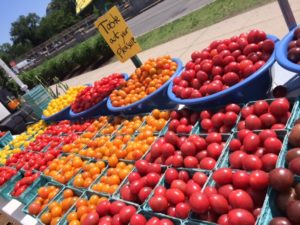 THI is doing some great work with this model, and they are helping people like us, and organizations we are a part of, figure out even greater ways to serve. I had to look further than what I thought the hipsters were doing to see that we shared in significant and important work together. So, if this is your thing, you should check THI out: www.baylor.edu/texashunger. Tell Doug that Liz sent you.
THI is doing some great work with this model, and they are helping people like us, and organizations we are a part of, figure out even greater ways to serve. I had to look further than what I thought the hipsters were doing to see that we shared in significant and important work together. So, if this is your thing, you should check THI out: www.baylor.edu/texashunger. Tell Doug that Liz sent you.
“It’s my pleasure to serve you,” I would repeat over, and over again as I placed a ladle-full of fruit in a cup for welcoming hands. “It’s my pleasure to serve you.” There were so many gathered. I was going as fast as I could, but still wanted to be gentle, and kind with every cup offered. All of a sudden, the group in front of me parts down the middle, and a tiny lady comes through offering up gloved hands, and soft eyes. My heart leaps, and I can barely get a whisper through my tears, “It’s my pleasure to serve you, Lulu…My pleasure to serve you.”
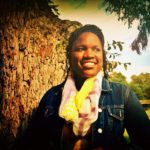 This post was written by Liz Ligawa. Liz is a graduate student of Baylor University where she has found the perfect expression of her community-centered heart in the MDiv/MSW degree program. With a concentration on Community Practice, she is also the adoring mother of one son, Elijah, who prefers to be regarded in public as Spider-Man. She may be reached at [email protected].
This post was written by Liz Ligawa. Liz is a graduate student of Baylor University where she has found the perfect expression of her community-centered heart in the MDiv/MSW degree program. With a concentration on Community Practice, she is also the adoring mother of one son, Elijah, who prefers to be regarded in public as Spider-Man. She may be reached at [email protected].
The Act Locally Waco blog publishes posts with a connection to these aspirations for Waco. If you are interested in writing for the Act Locally Waco Blog, please email [email protected] for more information.
By Janet Phelps
A lack of knowledge and basic skills can have devastating effects on adults who want to go to college. Just ask Amber*, a 20-something student who came into my office at McLennan Community College last week and told me she wanted to go back to school.
Amber had recently lost her job at a fast-food restaurant and had been unable to find work since. In her two semesters at MCC before she dropped out, Amber had racked up $7,000 in student debt by accepting her entire financial aid package — subsidized and unsubsidized loans — and using the money for living expenses while enrolled in college.
How many credits had she earned? Not nearly enough. Amber still needs to complete her developmental education requirements – collegespeak for remedial classes that students who aren’t college material must take to catch up.
Facing repayment of her debts without a job or a college degree seems impossible to Amber, a first-generation college student who is financially independent and will be considered in default on her loans next month.
One possible way to help Amber and students like her is to help them get a stronger start into college by helping them perform better on the state college entrance test.
Around 60 percent of students entering MCC test into development education annually through the TSI, the state’s college entrance test. Those students must complete classes to improve skills they need for college-level courses before they can start taking courses that count toward a degree. For students like Amber, taking these classes burns through financial aid without improving earning potential or economic status.
A state-wide effort is being made to help students avoid developmental education classes. Local schools and colleges are also working to fill this gap.
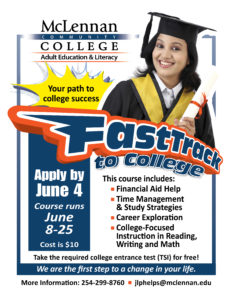 Adult Education and Literacy for the Heart of Texas is among the organizations tasked with helping these students. That’s why we’re creating classes meant to help transition adults from all walks of life to get into college and be successful.
Adult Education and Literacy for the Heart of Texas is among the organizations tasked with helping these students. That’s why we’re creating classes meant to help transition adults from all walks of life to get into college and be successful.
Because the MCC program is funded by the Texas Workforce Commission, we have the unique ability to offer these not-for-credit classes at a very low cost to students.
The first FastTrack to College class will equip students with the college knowledge they need for success including financial literacy and financial aid knowledge, career awareness, computer literacy, time management, and study skills. The class will also prepare students academically in reading, writing, and math to take the TSI, which is included in the $10 cost of the class. The class will be taught by MCC instructors and supported by officials from MCC and TSTC whose goal is for students to transition into college courses at those institutions in the fall.
This class is the first of what will become regular offerings of college-readiness classes through Adult Education to help students test out of developmental classes and build the confidence and skills they need to successfully complete their degrees.
So what can you do?
Refer people who want to go back to college and need extra support to this class. The process of signing up includes filling out an application, taking a placement test and completing a short goal-setting interview with a career navigator Adult Education.
For many Wacoans who are stuck in dead-end jobs, a technical certificate or associates degree from TSTC or MCC is the key to pulling an entire family into a stable financial position.
Our hope is that our efforts — along with those being made by other departments and organizations in this community — will boost the economic status of low-skilled adults and help students like Amber overcome knowledge gaps that threaten her success. Here are the details:
FastTrack to College class
Monday – Thursday
June 8 – 25, 2015
8:30 a.m. to 12:30 p.m.
McLennan Community College campus
To learn more about or to sign up for the FastTrack to College Class, contact Adult Education at 299-8053 or email Janet at [email protected]. Click here for a flyer to share with anyone you know who might be interested in this program.
*Amber is a pseudonym for a student who did not give permission for her name to be used on this blog.
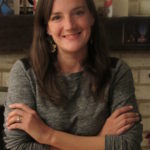 Janet Phelps is the Transition Specialist for Adult Education and Literacy for the Heart of Texas at McLennan Community College. She loves helping students, reading, and running at Cameron Park.
Janet Phelps is the Transition Specialist for Adult Education and Literacy for the Heart of Texas at McLennan Community College. She loves helping students, reading, and running at Cameron Park.
The Act Locally Waco blog publishes posts with a connection to these aspirations for Waco. If you are interested in writing for the Act Locally Waco Blog, please email [email protected] for more information.
By Georgie Price
Three years ago, I began my professional career after college working as a case manager for children and adolescents struggling with mental health or behavioral challenges. I had little idea of what mental health was or how it impacted anyone in the community. I was naïve to the prevalence of mental health issues among youth.
Since then, I have had many experiences open my eyes to the need for help right here in our Waco community. Children and adolescents face a variety of mental health challenges every day, which range from just not being able to get up and go to school, building positive social interactions, to learning how to live and understand mental health and behavioral challenges. Many times family members, teachers and other individuals who interact with this population do not recognize signs and symptoms of mental health concerns, just because they don’t know what to look for. In my experience, this leads to children and adolescents with mental health concerns being seen in a negative light and not receiving the help they need. When just looking at the surface level, we may miss the indicators of a much larger issue, the most prevalent of these issues being anxiety, behavior, mood, and substance use disorders.
The pervasiveness of mental illness in young people can be surprising. For instance, our youth suffer from many disorders including: anxiety disorders at a rate of 31.9%, behavior disorders 19.1%, mood disorders 14.3%, and substance use disorders at 11.4%. Young people that suffer from these disorders are at a higher risk for suicide which, sadly, is the third leading cause of death for young people in the United States. Coming into this profession, I had no idea of the impact mental health was having on our young people but I knew there had to be a way for me to help.
A little over a year ago, I was fortunate enough to be part of a training, to become an instructor for Youth Mental Health First Aid. This program is geared towards educating and certifying community members to provide Mental Health First Aid, empowering them to recognize signs and symptoms of metal health within this population. In my agency, we are able to train a number of people including parents, youth leaders, and any group interested; however, we have geared our efforts towards training those most in contact with youth, which are our educators.
With all of the adversities youth and adolescents face today, it is imperative we differentiate normal teenage behaviors from a mental health concern or crisis. The training is intended for those without background or experience in mental health, and it is very easy to understand. My hope is that the more people within the community are trained, the more successful we all will be at helping our youth and families, as it takes a team to help youth and families achieve the life they desire.
Let me share a story with you: Approximately a year ago, I met a youth and his parent. This youth had a history of assaulting family members and obtaining lethal weapons. CPS was involved and the youth was then on juvenile probation for theft. As we sat down at their kitchen table, the youth would not look or acknowledge me and the parent was suspicious and resistant towards any help I could offer them. I was definitely discouraged, but chose not to give up. I knew I needed a team to help me connect with this family and provide them with as much support as possible. I reached out to the community and gained the alliance of the principal, probation officer, Boy Scout leader, counselor, psychiatrist, and a family partner.
After a couple of months of persistent efforts, all of us showing up at their home, the youth’s school, probation report-ins, wraparound meetings, and connecting them to resources, they began to trust and open up to me. After six months, we are sitting at the same table, and both the youth and parent are engaged and ready for the next task to help them reach the vision they have for the life they want. Anytime there was a setback, it motivated us as a team even more, because this family was not just a family we were helping, they became our family. After a yearlong process of all of us working together, the youth was no longer on probation, making straight A’s in school, no CPS involvement, and home life had improved drastically.
All of these things could not have happened without the help of individuals from the community. No matter what role you play – parent, teacher, pastor, counselor, coach, mentor, and neighbor- you will make an impact on that young person’s life. I encourage everyone to become educated on child and adolescent mental health, whether it is through a program like Youth Mental Health First Aid, or just checking out a book from the library that will better prepare you for interactions with this population. Thankfully, there are many organizations in the Waco community that you can reach out to, but one of the best ways to help our young people is to be become educated on mental health yourself. Your involvement and support in their lives is an invaluable resource we cannot replace.
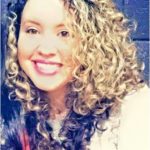 This Act Locally Waco blog post was written by Georgie Price. Georgie is a supervisor for a local non-profit that provides mental health services to children and adolescents. She attended Baylor University and earned a B.A. in Psychology in 2011. Originally from Marlin, Texas she began attending Baylor University in the fall of 2009 and moved to Waco in the fall of 2010 where she has lived since that time. Outside of work she enjoys spending time with her family and finding ways to positively impact children within our community. If you would like to contact Georgie further concerning Youth Mental Health First Aid training or additional resources please contact her at 254-297-7268.
This Act Locally Waco blog post was written by Georgie Price. Georgie is a supervisor for a local non-profit that provides mental health services to children and adolescents. She attended Baylor University and earned a B.A. in Psychology in 2011. Originally from Marlin, Texas she began attending Baylor University in the fall of 2009 and moved to Waco in the fall of 2010 where she has lived since that time. Outside of work she enjoys spending time with her family and finding ways to positively impact children within our community. If you would like to contact Georgie further concerning Youth Mental Health First Aid training or additional resources please contact her at 254-297-7268.
The Act Locally Waco blog publishes posts with a connection to these aspirations for Waco. If you are interested in writing for the Act Locally Waco Blog, please email [email protected] for more information.
